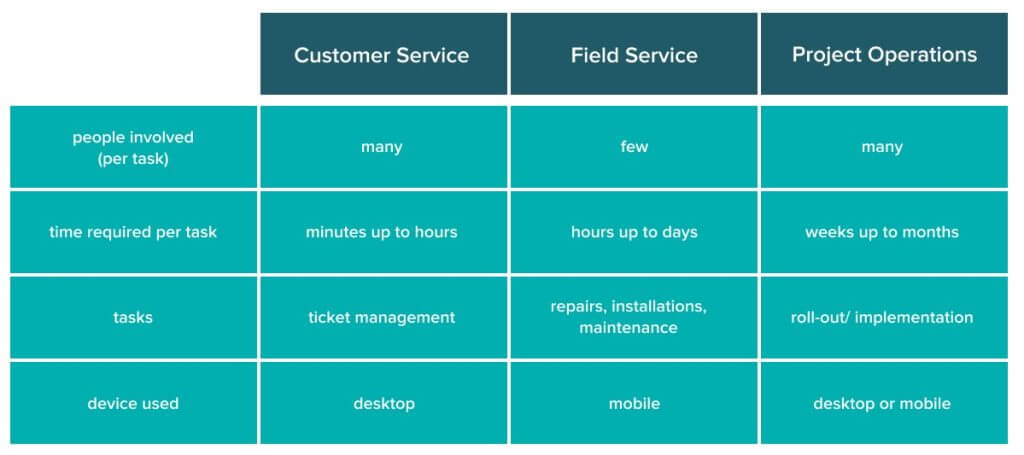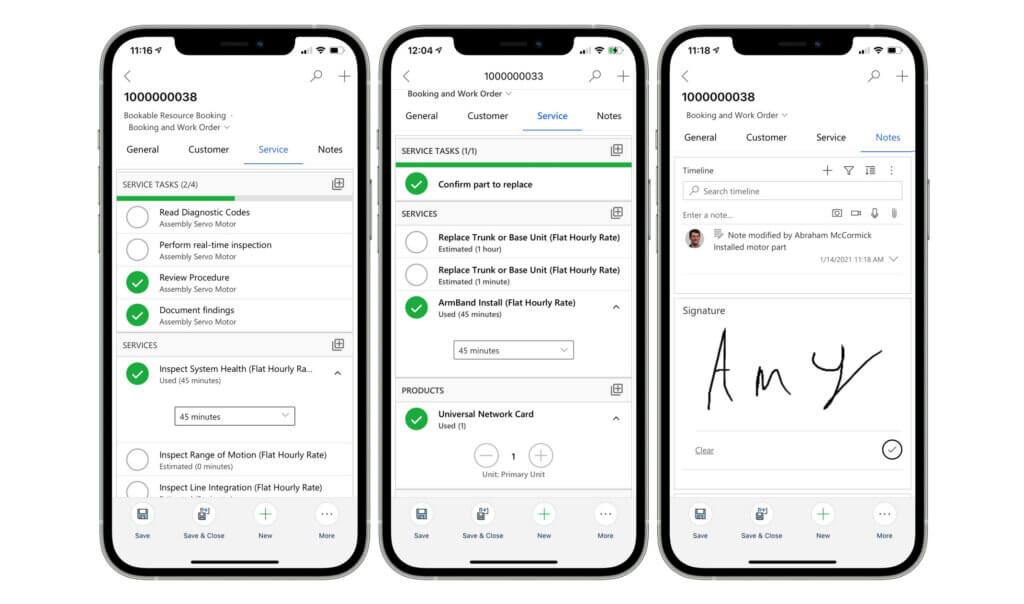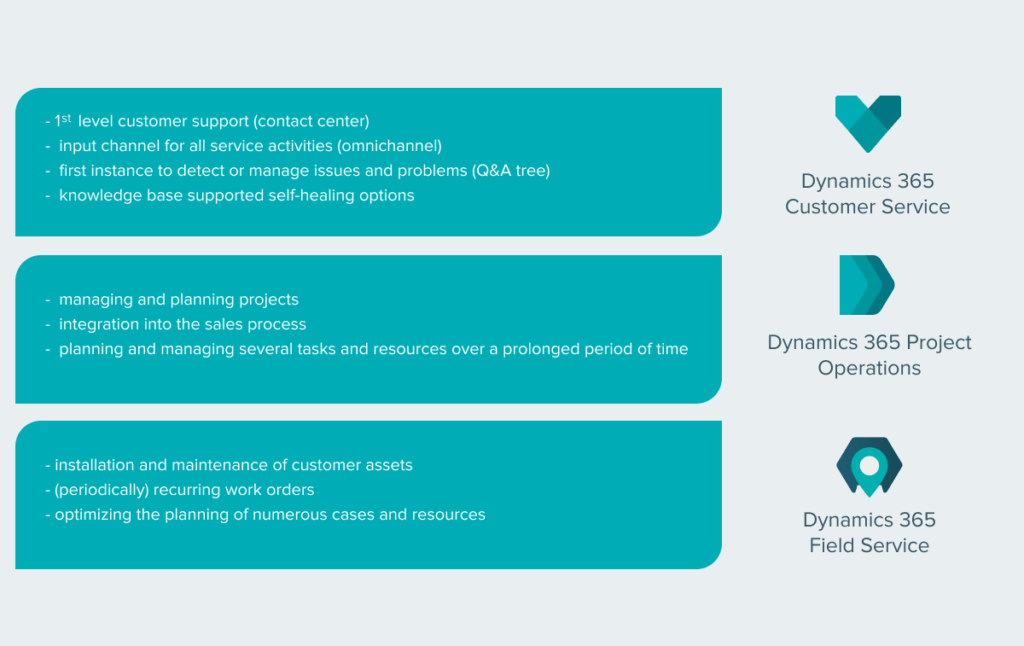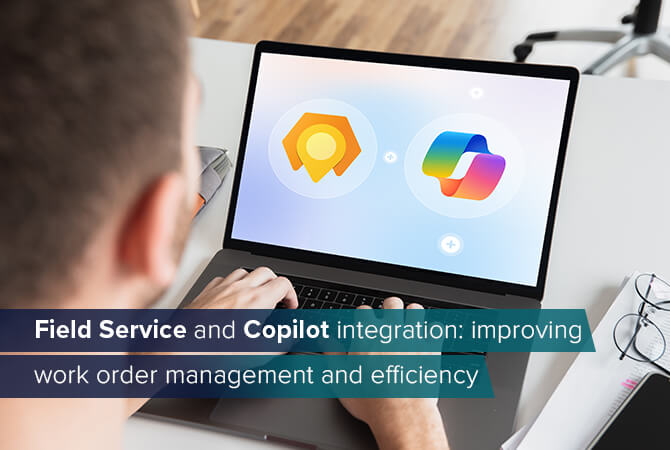
Dynamics 365 service modules: The entire customer life cycle with 3 apps
Content
There is sales, there is marketing, and then there is a whole host of service modules in Microsoft Dynamics 365. With Dynamics 365 Customer Service, Dynamics 365 Project Operations, and Dynamics 365 Field Service the platform encompasses all the services you need to cover your entire customer life cycle, starting with the sales, to order processing and culminating in after-sales service.
Overview of the three apps
The three apps differ in scope and are used by different departments at different stages in the customer life cycle:
- Dynamics 365 Project Operations is a project management solution that supports project managers and team members in planning, staffing, executing and controlling projects over a prolonged period of time.
- Dynamics 365 Field Service, on the other hand, is used to manage rather short-term work orders. The app supports dispatchers in selecting the best-suited technicians for a work order and getting them to the customer at the right time. Hence there are fewer resources involved in this process.
- Dynamics 365 Customer Service helps manage first-level support and the points of contact for customers both before and after a project to get support regarding products and services.

All three apps use Unified Resource Scheduling. Universal Resource Scheduling is a scheduling engine that accesses a shared resource to ensure that resources are not scheduled twice. Since somebody working on a project cannot also do field service or second level-support at the same time.
Service processes in Dynamics 365
The default processes in Dynamics 365 Field Service and Dynamics 365 Project Operations (PO) are similar, both starting at the sales process. Dynamics 365 Project Operations supports the sales of services and thus sales professionals and integrates technical and operative resources into the sales process. The workflow then progresses to:
- project planning,
- resource management,
- project collaboration,
- project monitoring and
- time and expense tracking by project team members.
That helps project managers to keep on top of things.
With Dynamics 365 Field Service, its vsales aspects pertain to service agreements, e.g. for preventive maintenance. The app supports conceiving service agreements and to initiate regularly scheduled or ad hoc maintenance work orders. The app also involves inventory management capabilities and offers mobile support for technicians on the road.

Dynamics 365 Customer Service is focused somewhat differently. The app helps businesses offer customers many different channels to get in contact with their service teams, including chatbots (virtual agents), telephone integration, chat functionality and WhatsApp integration. Plus, customers are provided many self-healing options to fix problems themselves. The app’s features also include call center handling with call and action scripts, supported by a knowledge base. Artificial intelligence recognizes processing times, bottlenecks and peak times.

(click to enlarge)
One data basis for all Dynamics 365 service modules
All modules part of the Dynamics 365 platform share a common data basis, the Dataverse, and seamlessly integrate into the rest of the Microsoft product world, namely Microsoft 365, Microsoft Teams and more.
Due to all modules sharing a common data basis that can be extended and used with Microsoft’s Power Platform, there are plenty of options for analysis purposes, too.
All these functionalities are complemented by Microsoft AppSource, a marketplace for Microsoft partners that lets them share their Microsoft-compatible apps and other offers related to the Dynamics 365 platform.
Learn more about all these apps on our Dynamics 365 product page where you can also access exclusive demo videos and schedule consultancy calls with our experts.













